CUEB Leaders Inspect Classified Development Projects & Emerging Cross-Disciplinary Platforms
Wu Weixing, CUEB Deputy Party Secretary and President; Xu Fang, CUEB Deputy Party Secretary; Li Xiaomu, CUEB Vice President; Yin Zhichao and Li Kunpeng, members of Party Standing Committee and Presidents of CUEB, led a team to check the projects and platforms on October 15 to advance the construction of CUEB’s classified development projects and emerging cross-disciplinary platforms.
In the morning, a special meeting on the work report of the projects and platforms was held in the 7th conference room of the Bona Building. Wu Weixing, Xu Fang, Yin Zhichao and Li Kunpeng attended the meeting presided over by Ruan Jing, Director of the Office of Development and Planning and Director of the Discipline Construction Office.
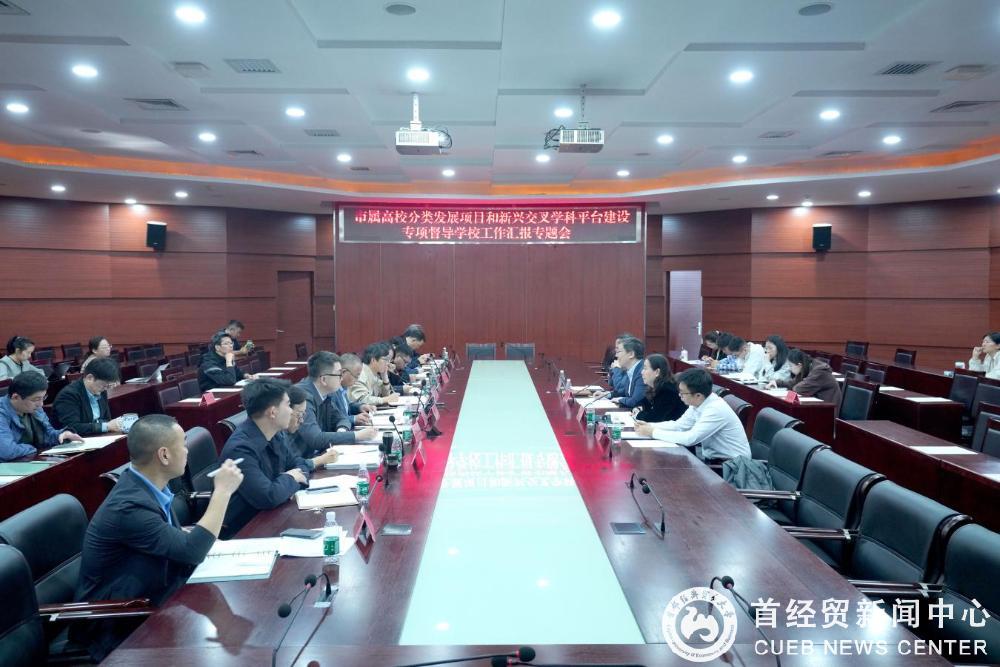
President Wu fully affirmed the effectiveness of the projects and platforms, and put forward the following four requirements:First, to further highlight the school features through classified development projects to better serve Beijing in the new era. Second, to promote the vigorous development of the whole university with projects and platforms, and all departments are expected to refine work measures and organize the outcomes. Third, to strengthen the management of financial resources, ensuring that the allocation of funds corresponds to the outcomes. Fourth, to bolster the integration of both external and internal resources, promoting greater communication and cooperation among research teams, and jointly pursuing the social influence of CUEB.
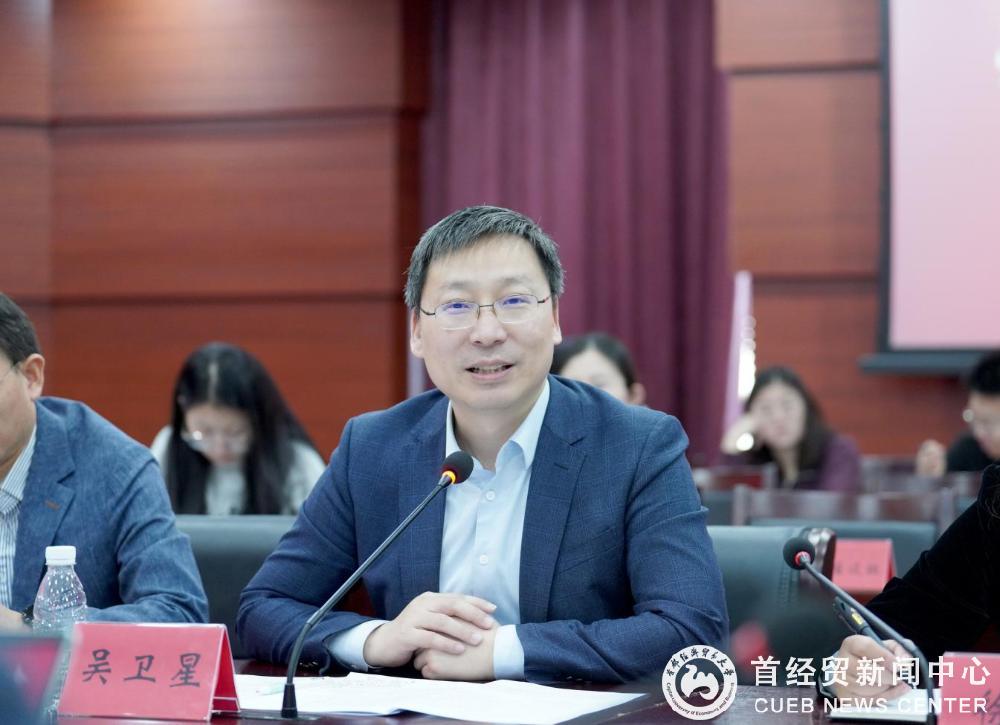
Xu Fang made the following remarks:First, in terms of high-level personnel, it is necessary to further highlight their remarkable achievements. Second, in the construction of qualified personnel, it is necessary to focus on strengthening support and assistance for the growth of teachers, especially young teachers. Third, it is necessary to thoroughly review and the achievements of CUEB with a particular emphasis on the achievements of the digital economy interdisciplinary platform’s service to Beijing, a city recognized as a digital economy leader.Fourth, the deployment of funds should be efficient and effective.
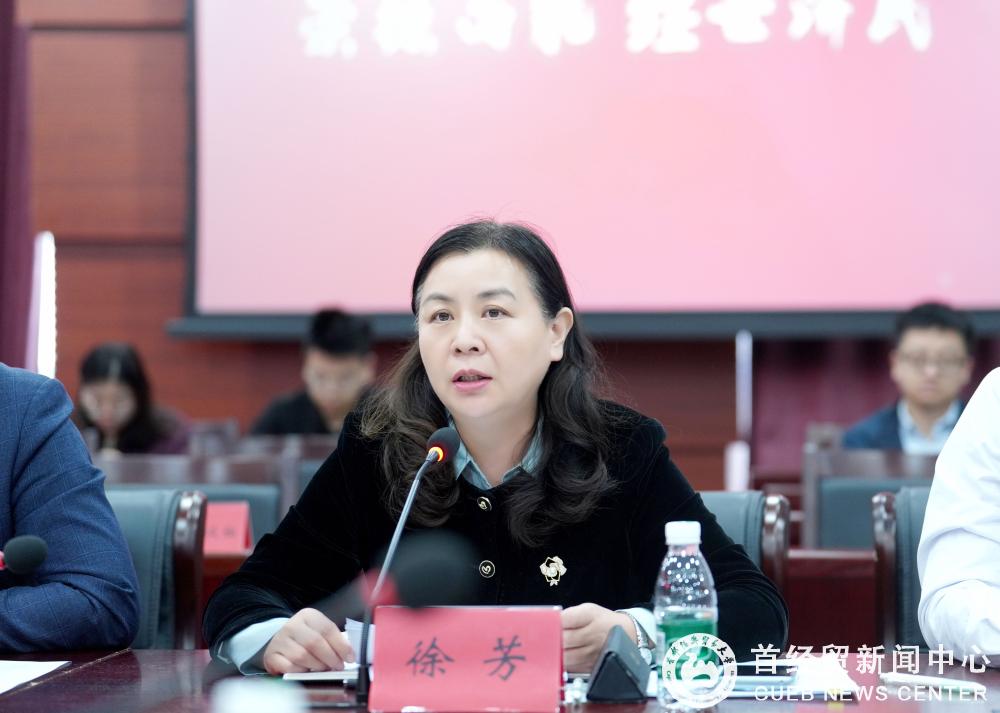
Then Yin Zhichao emphasized the following points: First, improve the form of reporting, clarify the display concepts, and improve the reporting effect. Second, it is necessary to verify the accuracy of the data, specifying the exact time and scale for the statistics. Third, the expenditure of funds should correspond to the actual performance of the work. Fourth, it is necessary to further compare and consolidate the achievements of the projects and platforms to avoid any overlap or gaps.
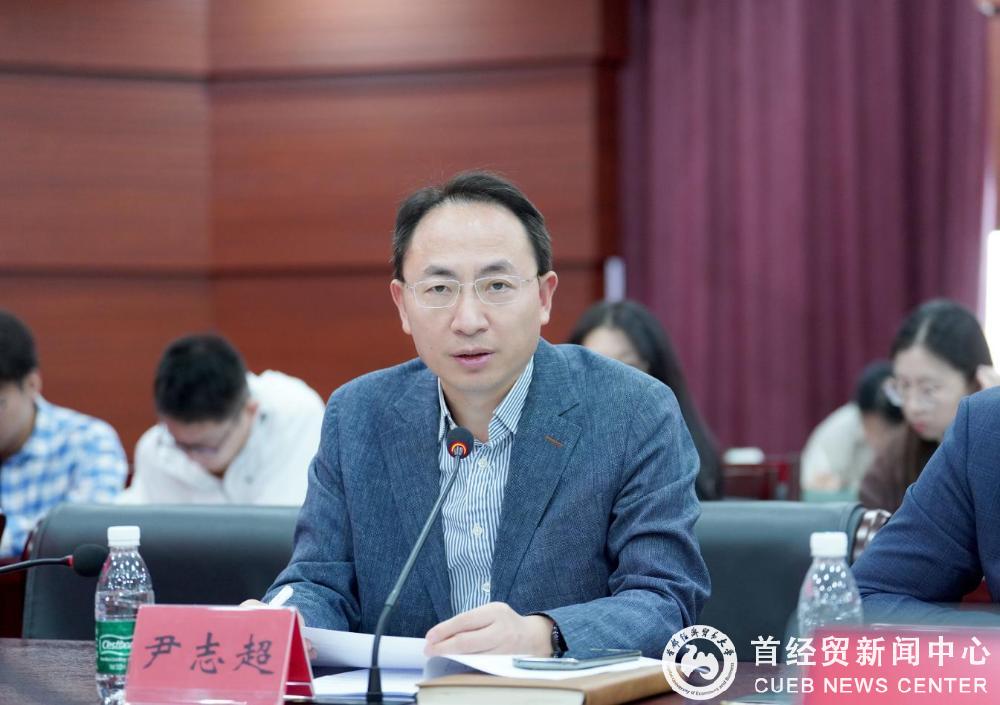
Li Kunpeng proposed four points as follows: First, the budget implementation should be further strengthened. Second, the construction should focus on “incremental”, highlighting the comparison with peer universities, as well as with previous outcomes. Third, in terms of teaching, we should highlight the initiatives and achievements in artificial intelligence. Fourth, we should further strengthen the publicity of all work, enrich the means of publicity, and highlight the sense of achievement of faculty and students.
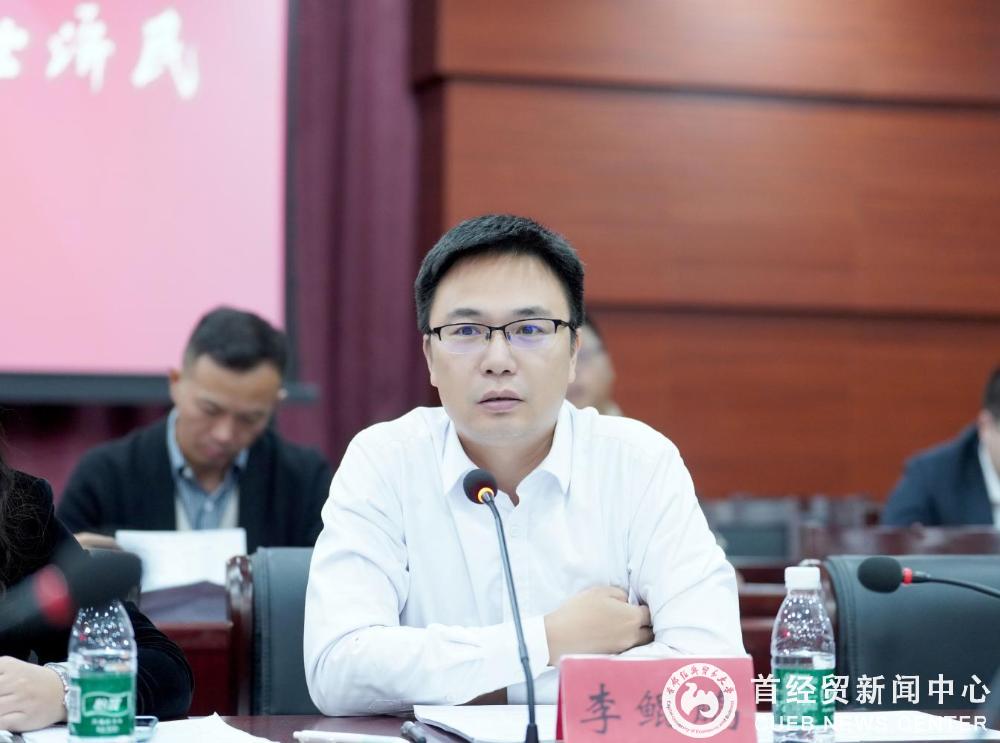
Finally, Fan Hejun, director of Office of Research, made a report on the construction of classified development projects, and Ruan Jing on the construction of emerging interdisciplinary platforms. The heads of relevant departments exchanged ideas about the reports.
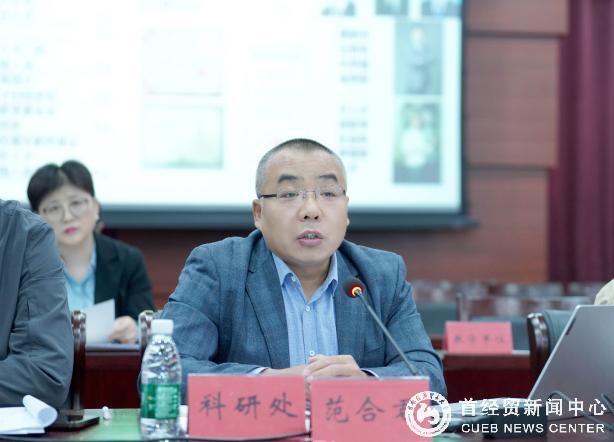
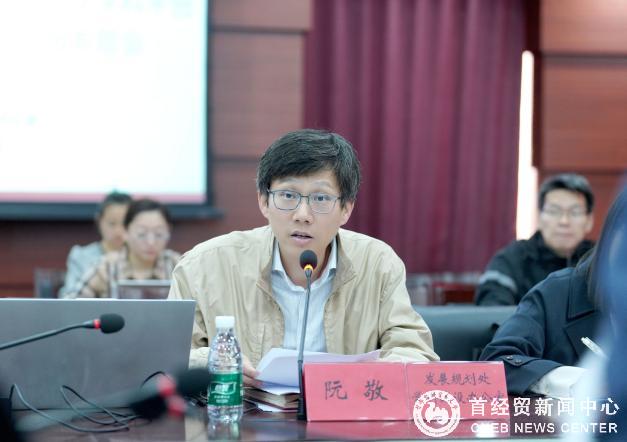
The meeting was attended by representatives of departments, including Party and Government Office, Party Committee Organization Department, Party Committee Publicity Department, Party Committee Security Department, Security Department, Office of Development and Planning, Discipline Construction Office, Academic Affairs Office, Research Office, Teachers Affairs Department of the Party Committee, Personnel Office, Division of Financial Administration, Office of Logistics Services, School of Business Administration, School of Economics, School of Culture and Communication, School of Finance, School of Statistics, Network Information Center, the Academy of Metropolis Economic and Social Development and Beijing Digital Economy Research Institute, contact persons of each section of the special supervision, and participants of the symposium for teachers and students.
In the afternoon, Wu Weixing, Xu Fang, Li Xiaomu and Yin Zhichao led the team to investigate a number of institutes and platforms: the Capital Institute of Development and Innovation, CUEB Academy, the Virtual Simulation Laboratory, the Financial Technology Laboratory, the Institute of Big Data and Statistical Sciences, the Experimental Teaching Center of Economics and Management, the Beijing Key Laboratory of System Evolution and Sustainable Development of Urban Agglomerations, the Beijing Institute of Digital Economy Development, and the Experimental Teaching Center of Humanities and Communication.
Wu Weixing emphasized the importance of fully understanding the development achievements of the projects and platforms. He said that the laboratories, research institutes, experimental teaching centers, and other departments of CUEB are important platforms for serving Beijing and supporting the faculty and students of CUEB, thus highlighting the characteristics and effectiveness of the outcomes.
Xu Fang remarked that all departments should focus on improving the teaching effect and students’ learning experience to carry out in-depth display, and highlight the support to teachers and students in teaching, scientific research, innovation and other aspects.
Li Xiaomu stated that all departments should highlight specific characteristics and maintain hardware facilities in good condition.
Following that, Yin Zhichao indicated that each department should strengthen the display of practical effects, highlight the distinctive characteristics of a university focused on economics and business, and employ more data from CUEB.
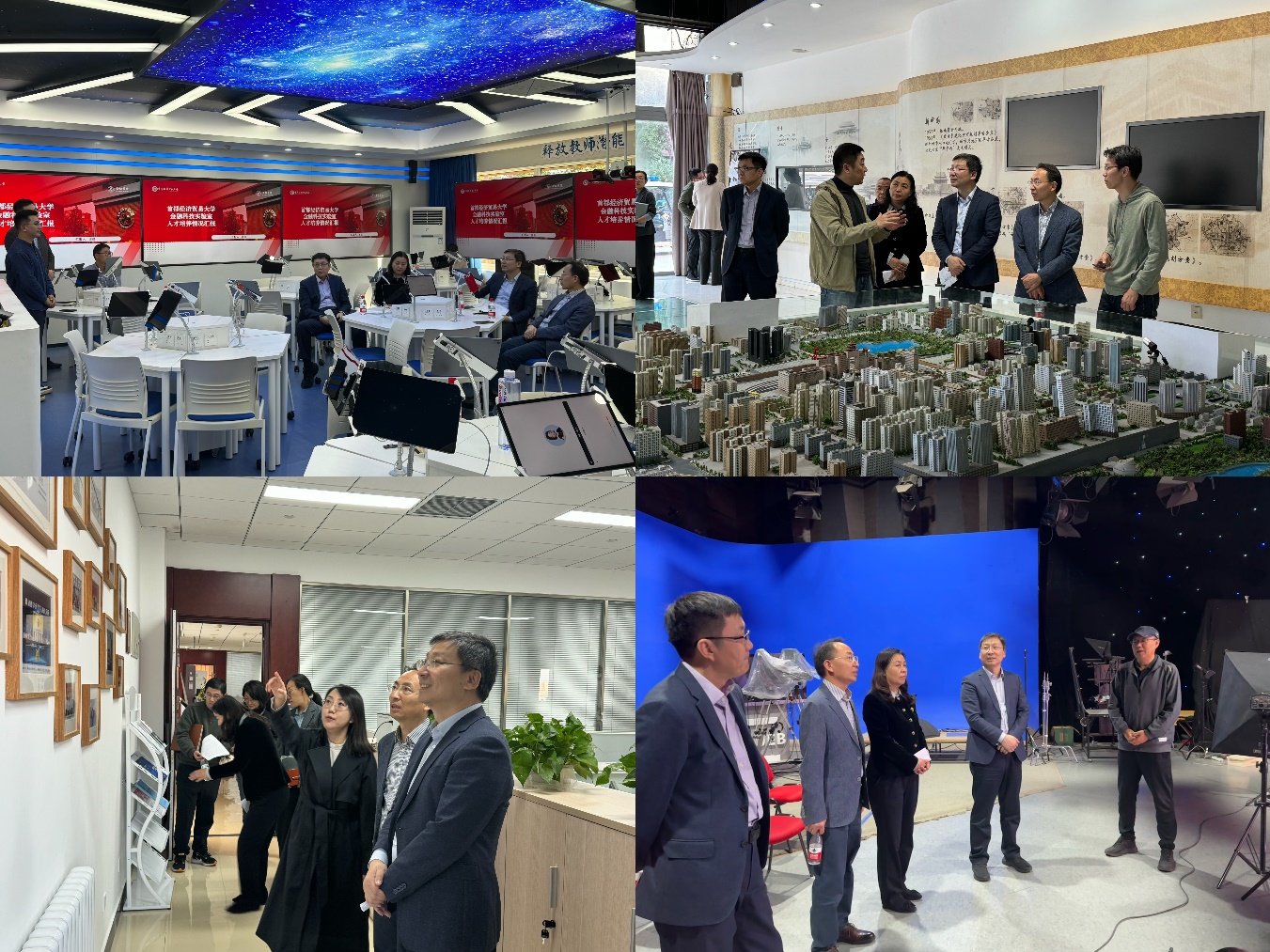
The visit was also attended by heads of departments, including the Party and Government Office, Office of Development and Planning, Discipline Construction Office, Academic Affairs Office, Research Office, Teachers Affairs Department of the Party Committee, Personnel Office, and some others.
